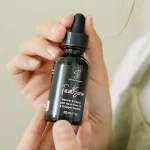Common uses include cancer and shedding
Selenium is a trace mineral that our bodies use to produce glutathione peroxidase, an enzyme that serves as a natural antioxidant. Selenium is also required for normal pancreatic function and lipid absorption. Glutathione peroxidase works with vitamin E to protect cell membranes from damage caused by dangerous, naturally occurring substances known as free radicals. Adequate amounts of selenium can spare vitamin E, and adequate amounts of vitamin E can reduce the selenium requirement. By ensuring that pets receive adequate amounts of both E and selenium, these important nutrients will not be deficient and will work together to help fight oxidative damage in your pet’s body.
Selenium also has an important role in maintaining normal levels of thyroid hormones and in the metabolism of iodine, which is involved in thyroid hormone metabolism. Supplementing the diets of pets and plant enzymes can increase the selenium levels.
Therapeutic Uses
Many pets with excessive shedding will show decreased shedding as a result of enzyme supplementation. This may occur as a result of increased selenium levels and the impact selenium has on thyroid hormones.
In pets selenium is often prescribed (along with other antioxidants) for pets with a variety of disorders, including epilepsy, inflammatory bowel disease, feline leukemia, feline immunodeficiency virus and cancer.
There is some real evidence that selenium supplements can provide some protection against several types of cancer. This chemo-preventive effect isn’t fully understood. It might be due to the protective effects of the antioxidant glutathione peroxidase, but other explanations have also been suggested.
In people, selenium has been recommended for cancer prevention, AIDS, acne, cataracts, heart disease, multiple sclerosis, cervical dysplasia, asthma, rheumatoid arthritis, anxiety, gout, infertility in men, psoriasis, and ulcers.
Treatment with corticosteroids may induce selenium deficiency; supplementation may be recommended in pets receiving long-term corticosteroid therapy.
Scientific Evidence
A large body of evidence has found that increased intake of selenium is tied to a reduced risk of cancer. The most important blind study on selenium and cancer in people was a double-blind intervention trial conducted by researcher at the University of Arizona Cancer Center. In this trial, researchers saw dramatic declines in the incidence of several cancers in the group taking selenium. The selenium-treated group developed almost 66 percent fewer prostate cancers, 50 percent fewer colorectal cancers, and about 40 percent fewer lung cancers as compared with the placebo group. Selenium-treated subjects also experienced a statistically significant (17 percent) decrease in overall mortality, a greater than 50 percent decrease in lung cancer deaths, and nearly a 50 percent decrease in total cancer deaths.
Further evidence for the anticancer benefits of selenium comes from large-scale Chinese studies showing that giving selenium supplements to people who live in selenium-deficient areas reduces the incidence of cancer. Also, observational studies have indicated that cancer deaths rise when dietary intake of selenium is low.
The results of animal studies corroborate these results. One recent animal study examined whether two experimental organic forms of selenium would protect laboratory rats against chemically induced cancer of the tongue. Rats were given one of three treatments: 5 parts per million of selenium in their drinking water, 15 parts per million of selenium or placebo. The study was blinded so the researchers wouldn’t know until later which rats which treatment. Whereas 47 percent of rats in the placebo group developed tongue tumors, none of the rates that were given the higher selenium dosage developed tumors.
Another study examined whether selenium supplements could stop the spread (metastasis) of cancer in mice. In this study, a modest dosage of supplemental selenium reduced metastasis by 57 percent. Even more significant was the decrease in the number of tumors that had spread to the lungs. Mice in the control group had an average of 53 tumors each, whereas mice fed supplemental selenium had an average of one lung tumor.
Putting all this information together, it definitely appears that selenium can help reduce the risk of developing cancer.
Sources
Wheat germ, Brazil nuts, other nuts, oats, fish, eggs, liver, wholewheat bread, bran, red Swiss chard, brown rice, turnips, garlic, barley and orange juice contain selenium. There is some concern with conventional farming practices that mineral levels in the soil are inadequate. This means that the soil used for growing vegetables and fruits may be deficient in minerals such as selenium. According to information from the Organic View, 1:17 (www.purefood.org/organicview.htm), there is great variability in the nutrient contents of foods raised by industrial agricultural practices when compared to organically raised foods. For example, they report that in an analysis of USDA nutrient data from 1975 to 1997, the Kushi Institute of Becket, Massachusetts, found that the average calcium levels in 12 fresh vegetables declined 27 percent; iron levels dropped 37 percent; vitamin A levels 21 percent and vitamin C levels 30 percent.
They also report that a similar analysis of British nutrient data from 1930 to 1980 published in the British Food Journal found that in 20 vegetables, the average calcium content had declined 19 percent; iron 22 percent; and potassium 14 percent. In addition, a 1999 study out of the University of Wisconsin found that three decades of the over use of nitrogen in U.S. farming has destroyed much of the soil’s fertility, causing it to age the equivalent of 5,000 years. Finally, a new U.S. Geological Survey report indicates that acid rain is depleting soil calcium levels in at least 10 eastern states, interfering with forest growth and weakening trees’ resistance to insects. Findings such as those reported here prompt many owners to search for the most wholesome produce available to include in their pets’ diets.
Check with stores in your area to see whether they offer organically raised vegetables and animal meats. Also, ask them what they mean by the term “organically raised,” as many producers may make his claim but still use conventional agricultural practices. Find out everything you can about the farmers who supply the stores where you shop.
Since most of us have no way of knowing what kind of soil our food was grown in, supplementing pets with selenium and other vitamins and minerals may be a good idea.
The two general types of selenium supplements are organic and inorganic. However, these terms have nothing to do with “natural” but rather refer to the chemical form (the terms have very specific chemical meanings and have nothing to do with “organic” foods).
The inorganic form of selenium, selenite, contains no carbon atoms and is essentially selenium atoms bound to oxygen. Some research suggests that selenite is harder for the body to absorb than organic (carbon-containing) forms of selenium, such as selenomethionine (selenium bound to methionine, an essential amino acid) or high-selenium yeast (which contains selenomethionine). However, other research on both animals and humans suggests that selenite supplements are almost as good as organic forms of selenium, and both forms are equally effective in supporting glutathione peroxidase activity. In pigs, studies have shown that selenium stores in the liver and muscle tissues were greater when organic selenium was fed. Supplying selenium in whole food supplements is the most natural way to supply selenium and is recommended for maintenance.
Dosage
The AAFCO recommendation is 0.11 mg/kg of food (dry matter basis) for dogs and 0.1 mg/kg of food for cats. However, recent research in puppies has shown that the level of dietary selenium needed to maximize glutathione and selenium levels is 0.21 ppm, which is double current AAFCO recommendations. Therefore, supplementation with a natural vitamin-mineral supplement containing selenium might be indicated for all pets eating commercial diets.
Safety Issues
Selenium is safe when taken at the recommended dosages. However, very high selenium dosages in people are known to cause selenium toxicity. Signs of selenium toxicity include depression, nervousness, emotional instability, nausea, vomiting, and in some causes loss of hair and fingernails. Similar precautions are probably warranted in pets taking supplements, although toxicity has not been noted in pets despite concentrations greater than 4 mg of selenium/kg of food in cat foods containing fish or other seafoods. (Cats may be able to tolerate higher selenium levels as their higher dietary protein foods are protective against high selenium levels; the low availability of selenium in pet foods may also contribute to rare reports of toxicity in dogs and cats fed commercial diets.)











